Just a heads up, some of the links on this blog are affiliate links. This means if you click and make a purchase, I may earn a small commission—at no extra cost to you! Think of it as a tiny thank-you tip for my endless search for the best health, wellness, and sustainable living products. Rest assured, I only recommend things I truly love or wish I could hug in real life.
Unveiling the Health Wonders of Juice!
Jennifer Jane BSN, RN
6/11/20249 min read
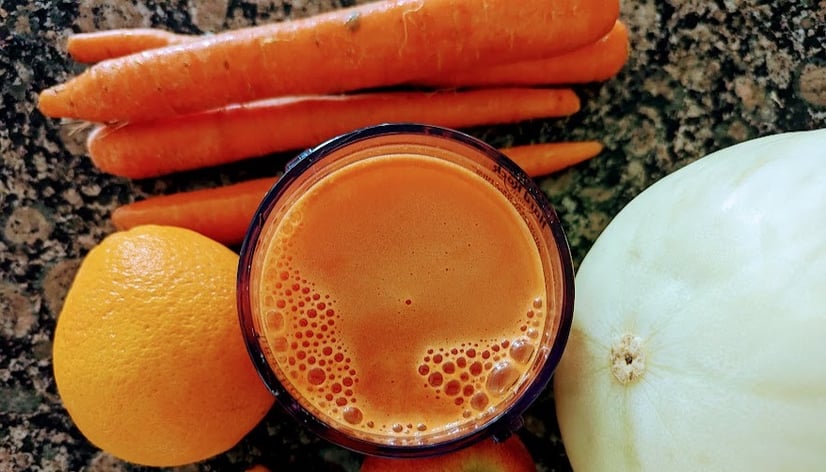

Do you wish for more energy, a better mood, glowing skin, improved health, or weight loss? Drink fresh juice! The bioactive compounds in fresh juices reduce the risk of chronic and degenerative diseases and improve memory (1).
Drinking fresh juice is an uplifting, delicious way to nourish your body with a quick dose of concentrated nutrients.
You don't need to drive to the juice bar to enjoy your favorite refreshing beverage. This guide will explore the many health benefits of fresh juice and how juicing at home can provide you with a dose of health and vitality right in your own kitchen!


Exploration of juicing's health benefits
Juicing is the simple process of extracting the nutrient-rich liquid from fruits and vegetables, leaving behind the skins, pulp, and seeds.
It's a quick, convenient, and easy way to get a variety of vegetables and fruits into your diet, helping you meet your daily nutrition requirements. Fresh juice is brimming with essential antioxidants, vitamins, and minerals.
The rising trend of juicing as a wellness practice
Juicing has been soaring in popularity recently, driven by growing awareness and desire to live fitter, healthier lifestyles. Juice bars can be found in gyms, neighborhoods, and cities, offering juices in every rainbow color.
Books full of juicing recipes are available, and recipes are widely shared on social media, making it easy to create a variety of blends on your own.
Juicing at home for optimal health and vitality
Making your juices at home allows you to drink your favorite juices whenever you need a pick-me-up and gives you control over the freshness and quality of the ingredients.
You can add ingredients to help your specific health conditions, free from the undesirable ingredients that may be found in store-bought or restaurant-prepared juices, such as added sugars, colors, or preservatives.
Many store-bought juices are pasteurized or heated to about 185 degrees for a short time, which can reduce available polyphenols, vitamin C, and antioxidant activity (2).
Time in storage can cause juice's bioactive compounds to degrade, reducing its nutritional quality. Juicing at home and drinking your juice soon after it's made assures the highest-quality juice brimming with all the vitamins, minerals, and antioxidants that nature provides (3).
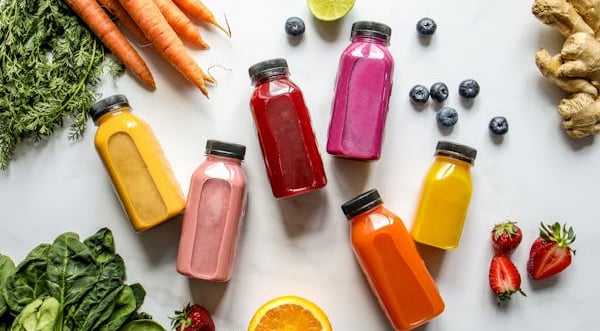

Nutritional Benefits of Homemade Juices
The abundance of vitamins and minerals found in fresh fruits and vegetables
Fresh fruits and vegetables are bursting with the essential vitamins, minerals, bioavailable phytonutrients, and antioxidants your body needs to function at its best and help fight disease. The fresher the ingredients, the more nutrients are retained.
The importance of phytonutrients and antioxidants for overall health
There is a significant gap in the amount of vegetables and fruits most people eat daily and the recommended health guidelines. Phytonutrients and antioxidants, found in high doses in plant foods, help to protect your body from inflammation and damaging oxidative stress, which can lead to chronic diseases (4).
Juicing with a wide variety of vegetables and fruits can help you reach nutritional guidelines to protect your health.
The role of vitamins A, C, and K, as well as minerals like potassium and magnesium
Your body requires many essential vitamins and minerals to function and keep you alive. Not getting enough of these nutrients can cause problems with muscles, nerves, bones, joints, teeth, eyes, heart, blood pressure, blood sugar, wound healing, bruising, fatigue, mood, inflammation… every part and function of your body (5).
Vitamin A is needed for immune system function, skin health and vision. Good plant sources are carrots, celery, kale, guava, sweet potatoes, pumpkin, squash, mango, cantaloupe, apricots, grapefruit, and papaya.
Vitamin C is essential for immune system function, wound healing, plant iron absorption, and skin health. Berries, kiwi, pears, citrus fruits, celery, cucumbers, broccoli, beets, cauliflower, spinach, kale, tomatoes, and bell peppers are high in vitamin C.
Vitamin K is needed for bone health and normal blood clotting. It is found in spinach, kale, pears, celery, cucumbers, lettuce, broccoli, blueberries, and figs. If you take the medication Coumadin, it's vital to pay attention to your vitamin K intake and get about the same amount each day.
Potassium is a vital mineral that helps to regulate fluid balance, blood pressure, kidney function, heart function, nerve transmission, and muscle contraction. Good sources are bananas, tomatoes, raisins, prunes, beets, dried apricots, acorn squash, celery, cucumbers, spinach, and oranges.
Magnesium is necessary for nerve and muscle function, blood pressure regulation, blood sugar control, bone, DNA, and protein production. Nuts, seeds, legumes, cucumbers, beets, and leafy greens are good sources.
The benefits of consuming whole foods in juice form for easier absorption and digestion
Juicing makes it easy for your body to absorb and use nutrients by breaking down the cell walls of vegetables and fruits.
Juice is easier to digest and gentler on the digestive system due to the lack of insoluble fiber. It may be especially beneficial for people who have digestive issues or diseases. However, fiber is essential to digestive health, so do not avoid it unless your health practitioner recommends it.
Some people dislike and avoid the taste or consistency of certain fruits or vegetables. Adding these fresh foods to a more palatable juice provides a wider variety of essential nutrients than they typically get in their usual diet.
Misconceptions about sugar content in juices and emphasizing the importance of balance
Many fruits are high in natural sugars. To keep the sugar content in your fresh juices low and your blood sugar at healthy levels, make your juice recipe high in vegetables and add in just enough fruits, about 10-20%, to make your juice nutrient-dense and sweet enough to be tempting and delicious.
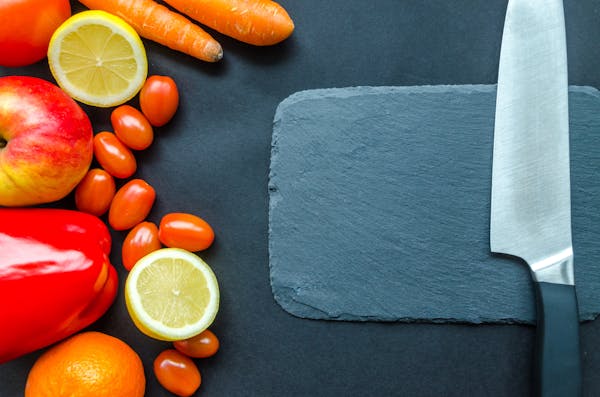

Health Promoting Properties of Homemade Juices
Immune Boosting
The immune-enhancing properties of citrus fruits and leafy greens
Not getting enough immune-boosting nutrients, such as Vitamin C and Vitamin A, puts you at serious risk for developing infections and diseases because your body cannot function properly.
Your immune system depends on you to feed and strengthen it. Optimal nutrition promotes a healthy and varied gut microbiome, an essential part of your immune system (6).
Good sources of vitamin C to add to your juices are citrus fruits, such as lemons, limes, pineapples, grapefruits, and oranges. Leafy greens like kale and spinach are high in vitamins C and A.
The role of antioxidants in supporting immune function
Free radicals are unpredictable, unstable atoms that can damage cells and weaken the immune system.
Antioxidants help neutralize free radicals by stabilizing them and protecting the body from damage. These need to be in balance. Consuming antioxidant-rich fresh juices can help strengthen the body's natural defenses (7).
Digestive Health
Introducing fiber-rich fruits and vegetables that promote digestive regularity
Juicing removes the insoluble fiber of fruits and vegetables but can still provide small amounts of soluble fiber needed for gut health. Pears, apples, and carrots are rich in fiber.
Juice increases the number and variety of beneficial microorganisms in the gut, helping to develop a flourishing gut microbiome that helps keep you regular and protects you from disease (8).
The benefits of juicing for individuals with digestive issues or sensitivities
Juicing is an excellent way for people with digestive issues or sensitivities to obtain a diet rich in a variety of needed nutrients without the digestive system working overtime to digest whole fruits and vegetables.
Fresh juice is also a quick way to get nutrients if you have difficulty chewing or swallowing after mouth or throat surgery.
Detoxification
The detoxifying properties of certain fruits and vegetables, such as beets and celery
Beets are high in compounds that support liver function and help prevent fat from depositing on the liver (9).
Celery is high in antioxidants and has many benefits, including protective effects on the liver, reducing blood pressure, and decreasing inflammation (10).
How juicing can support the body's natural detoxification processes
Nutrient-dense vegetable juices help provide the liver and kidneys with the water, vitamins, potassium, and enzymes needed to support the body's built-in detoxification systems.
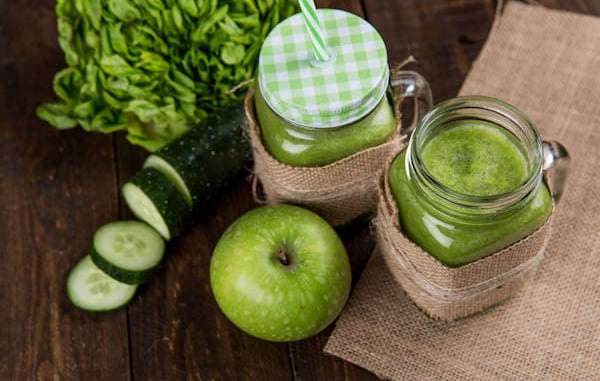

Weight Management and Energy Boosting Effects
The role of juicing in weight loss and weight maintenance efforts.
Juicing effectively promotes weight loss while providing delicious, low-calorie, nutrient-dense drink options that can replace high-calorie snacks and sugar-sweetened drinks like sodas, coffee drinks, and fruit-flavored refreshers.
Make sure to use a variety of vegetables in your juices to keep the sugars and calories low while maximizing vital nutrients.
The energizing effects of consuming fresh juices
Drinking fresh juices provides a natural energy boost without the jitters and crashes after consuming popular caffeine-laden, sugary iced coffee drinks.
The dense vitamin and mineral content and natural sugars in fresh juices are quickly and easily absorbed by the body, naturally increasing energy.
Tips for incorporating juices into a balanced diet for sustainable energy levels
Add Protein: Nuts, nut milks, chia seeds
Add Healthy Fats: avocado, tahini, coconut milk, ground flaxseed
The ratio of Vegetables to Fruits: use mostly vegetables in your juices to maximize nutrients while keeping sugar content low
Timing: Drink fresh juice as a healthy, vitamin-rich liquid snack between meals to stabilize energy levels throughout the day


Tailoring Juicing Recipes to Health Goals
Selecting fruits and vegetables based on specific health objectives
Another significant advantage of making your juices is tailoring the fruits and vegetables to support your health goals.
Digestive Health: Add ginger, carrots, papaya, and apples
Immune Support: Add ginger, leafy greens, and oranges
Detoxification: Add celery, beets, and parsley
Energy: Add kale, spinach, and citrus fruits
Some juices or ingredients may need to be avoided if you are taking certain medications, like blood thinners, or have certain health conditions, such as kidney disease or diabetes. Talk to your doctor to discuss which ingredients would be the healthiest for you and which you need to avoid.
The importance of variety and experimentation in juicing for optimal health benefits
Experimenting with various combinations of fruits and vegetables can help you discover new flavors you enjoy, identify how different ingredients affect your energy, digestion, and overall well-being, and ensure you receive a range of nutrients to help prevent deficiencies.
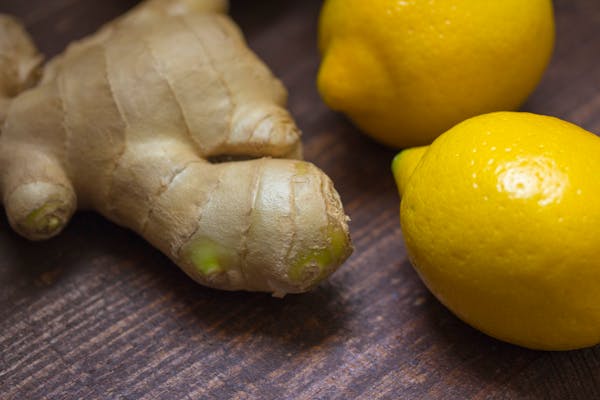

Tips for Juicing at Home
Selecting the right juicer for individual needs and preferences
There are a few different types of juicers:
Cold Press/Masticating Juicers are slow but efficiently crush and press ingredients, retaining enzymes and nutrients.
Centrifugal Juicers are affordable and make juices fast by grinding them into pulp and spinning them to separate the juice from the solids, but they generate more heat, which might break down some nutrients.
The one I use is the Breville Juice Fountain Plus it's $179.95 on Amazon, it makes enough juice for 3-4 days and it's very easy to clean!
Twin Gear Juicers are more expensive but make high-quality juice with the most retained nutrients.
Proper storage and consumption of homemade juices
Consume freshly made juices as soon as possible for maximum nutritional benefits. If you need to store your juice for a day or two, use airtight glass storage containers, refrigerate immediately after juicing, and drink in the next 48 hours days to retain quality.
To maximize the nutrient absorption of your fresh juice, drink it over a few minutes on an empty stomach. Don't let it sit out in the air, getting warm, which can degrade the beneficial nutrients and allow bacteria to grow.
Tips for incorporating juicing into daily routines for maximum convenience and sustainability
Shop — Shop for a wide variety of juicing ingredients regularly so they’re handy and you have choices at home.
Prep — Wash your fruits and vegetables when you buy them to reduce prepping at juicing time.
Batch — Immediately consuming fresh juice is best, but if you're pressed for time and cannot juice daily, make enough juice for a day or two.
Clean — Clean your juicer thoroughly immediately after you use it to make cleaning a breeze. Dried, stuck-on pulp makes the cleaning process a nuisance.
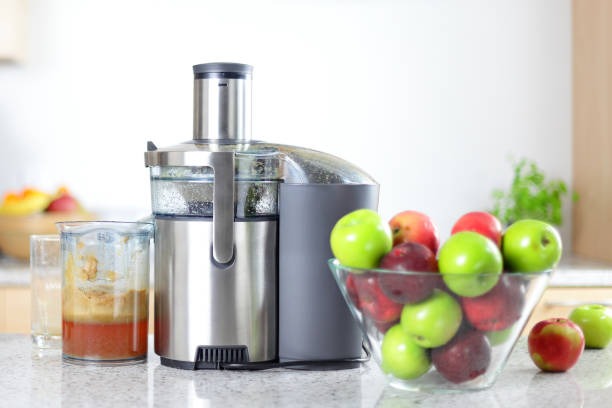

Bottom Line
Make your juice at home to delight in the fresh flavors and enhance your vitality!
Juicing helps you get your necessary nutrients, supports your immune system, supports skin and digestive health, boosts energy and mood, helps control your weight, and is refreshing and delicious.
Incorporating fresh juices into a healthy, balanced diet is a simple and effective way to help you on your journey to wellness.
© 2025 Salo Content Writing LLC, all rights reserved
Join the Movement for a Healthier Planet! 🌿
Subscribe now and get your FREE Sustainable Living Checklist! Plus, enjoy weekly articles and delicious plant-based recipes straight to your inbox. Let’s make sustainable living simple and inspiring, one email at a time! 💚✨
